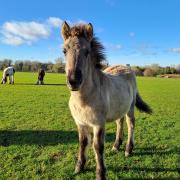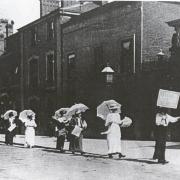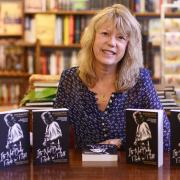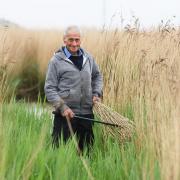This year for the first time, the festival has chosen three special “champions”.
Charlie says
Chef Charlie Hodson is a strong advocate of using and promoting Norfolk food and drink. Since becoming a food champion at the start of the year, he has worked closely with suppliers and restaurants to help them promote what they do.
“I shout, sing and dance about Norfolk produce all the time, so I jumped at the chance to get involved. For me it has always been essential as a chef to not just talk about it, but to make sure I use it. There are some amazing suppliers in Norfolk who have the most fantastic produce. For example, in my opinion, Norfolk quail is the best quail in England at the moment,” he says. “But we shouldn’t just be telling people it is fabulous, we should be using it. As part of what I do, I speak with all the suppliers and help come up with ideas for recipes and ways of promoting their produce; it is a two-way relationship.”
Charlie, who has just taken over as execitive chef at the Great Hospital in Norwich after a hugely successful time as head chef at the Grove in Cromer, says he has another aim for his time as food champion.
“I want to try to show young chefs aged 16 or 17 that this is a great place to be, that there are amazing restaurants and opportunities to work with food at the highest level and that you can be incredibly ambitious here and make a real name for yourself.”
Huw’s news
Huw Sayer is not a food producer, farmer nor chef, but he is a hugely influential figure on Norfolk’s food and drink scene thanks to his prolific tweeting and blogging, with some 4000 followers. He uses his much-read blog to write about visits to many food-related businesses and organisations across the county and how they fit into the food chain, from interviewing scientists at the Norwich Research Park and workers at agricultural machinery companies to learning more about Blake’s abattoir and Crisp Maltings.
“The main reason I said yes is because, aside from enjoying eating and drinking, I think such events are vital to our local tourism and hospitality industry. They encourage people to visit Norfolk throughout year, every year. But they are also important for local people because they bring the community together, encourage young and old to take more of an interest in what they eat and drink, and improve our quality of life.”
Hugh, who is also director and co-owner of communications consultancy Business Writers Ltd, is keen for Norfolk’s food-related businesses to get in touch with him via social media so they can promote what they do to an even wider audience.
“If you run a local market or have a stall on one – please tweet me when market day is coming up so I can re-tweet for you. Likewise, if you are – or know – a good supplier of local food and drink, or know of someone who is doing a great job encouraging people in Norfolk to eat healthy, local produce, then please let me know.”
William’s wisdom
Farmer William Gribbon, manager of Heygate Farms of Swaffham which is home to the Norfolk Peer potato, is a champion of regional high quality food production and is passionate about educating young people about the connection between agriculture and what they eat.
Heygate Farms was named Plough to Plate Champion in the 2012 EDP Norfolk Food and Drink Awards and William runs the Heygate Farms Grow and Cook Awards which supports the growing and cooking of food within schools.
“Norfolk has a huge depth of high quality producers, passionate about growing, catching and creating food and I love being part of that,” he says.
“One of the things I am trying to do is educate children about the growing of crops and farming in general and to connect that with what then goes on to their plates. Ever since I had three children myself, it has made me more determined than ever to give kids more practical knowledge, to get them out on farms and in the field sseeing it for themselves. We have amazing regional produce yet many people still do not think to buy local. It is so important to persuade people to support their farmers and producers, take a look on the bag and see where the potatoes come from? The taste is not only better, you are reducing food miles and it is important for sustainability and the local economy.”



























